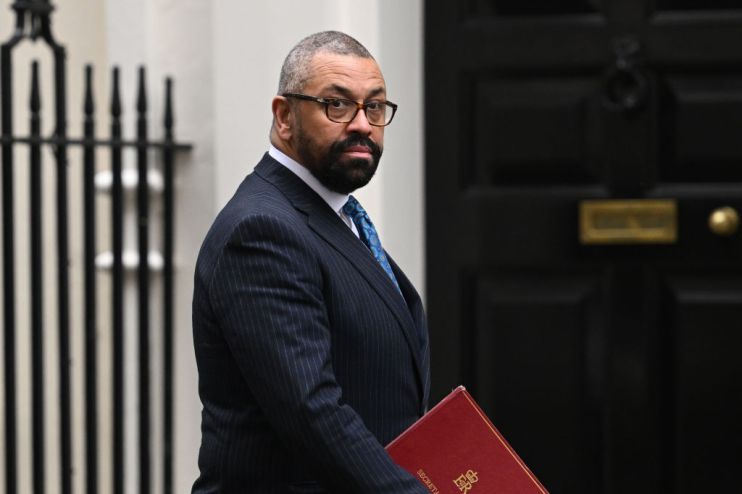Business groups slam government’s ‘politics over economics’ migration plans

Business groups have slammed the government’s plans to cut the levels of legal migration into the UK as “politics over economics”.
Salary thresholds for skilled workers will be increased to £38,700, up from £26,000, and overseas care workers will be banned from bringing dependants, home secretary James Cleverly has announced.
But some have already warned against the plan, suggesting it risks damaging the UK economy’s growth prospects and could make it harder to attract top global talent into the nation’s firms.
Mark Hilton, from Business LDN, said: ‘‘When businesses across the country are struggling with acute skills shortages, raising the salary threshold at which workers can be recruited from abroad would make it much harder for firms to access the talent they need to drive growth.”
He added: “Government should put economics before politics by working with business on building an immigration system which is flexible, fair and responsive.
“While also implementing long-term measures that help to boost the domestic pipeline of talent like reforming the apprenticeship levy.’”
Seema Farazi, of EY, added: “Competition for global talent is fierce. In an increasingly borderless business world, it is more important than ever that the UK can access the limited pool of highly skilled workers.”
Farazi said today’s announcement would make it harder for the UK to remain “at the forefront of progressive immigration policy for skilled workers, which is critical for driving economic productivity, maintaining market attractiveness and retaining top global talent”.
It came after official legal migration estimates found levels peaked at 745,000 in 2022, while the government faced a setback over its Rwanda deportation policy in the Supreme Court.
But Cleverly said his plans would result in the biggest ever net migration fall – by 300,000 per year – in an apparent bid to appeal to the hard-right of the Tory party who are opposed to unrestricted arrivals
Around 120,000 dependants accompanied 100,000 care workers in the year to September, the home secretary added.
He told the Commons the government was “curbing abuses to the health care visa.. increasing thresholds, cutting the shortage occupation list (SOL) discount, increasing family income requirements and cutting the number of student dependents.”.
The five-point immigration plan will see ministers: stop health and care workers bringing dependants; hike the skilled worker earnings threshold by a third to £38,700, in line with the median full-time wage; and scrap “cut-price” labour by stopping shortage occupations being able to pay 20 per cent less than the going rate and reforming the shortage occupation list.
Ministers will also raise the minimum income for family visas to £38,700 from £26,200, from next spring; and ensure the graduate immigration route is reviewed to prevent abuse.
Health surcharges will also rise this year by 66 per cent from £624 to £1,035, Cleverly said.
Naomi Smith, Best for Britain chief executive, said: “There are over a hundred thousand vacancies across our public services, not to mention the wider economy.
“Government can’t have it both ways; reducing immigration will stunt growth and put even more pressure on vital services. It’s time for Sunak to be honest that immigration is not only good for the UK but essential.”
And Labour’s shadow home secretary Yvette Cooper said ministers were failing to tackle immigration and workforce shortages.
“They’re failing to tackle the delays in the asylum system so pushed the net migration figures up, failing to tackle NHS waiting lists that are preventing the long-term sick going back to work, and the Prime Minister is just crashing around all over the place,” Cooper claimed.
“Can the home secretary tell us, where is the workforce plan on social care, on engineering, on brick-laying, on all shortage occupations that their total economic failure has left us with?”
